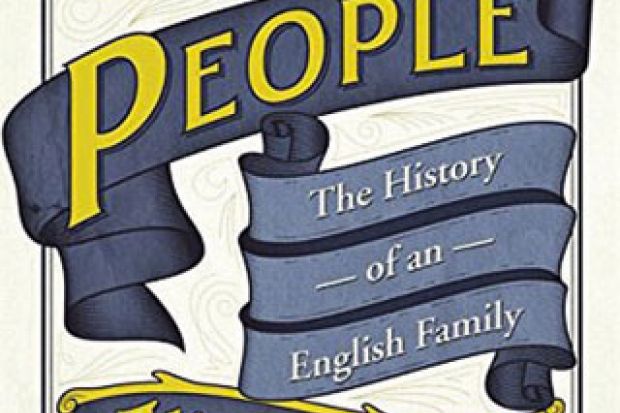This is a golden age for family history. The BBC recently marked 10 years, and 100 episodes, of the television programme Who Do You Think You Are? The popularity of genealogy has given rise to a whole industry of magazines, software packages and databases, while a few clicks on a website can send the novice researcher hurtling back through the generations. Once upon a time, the search for lineage and pedigree was a pursuit for the privileged, with titles and property to trace. But even in its current democratisation, the creation of a family tree often appears to be a way of privatising the past. Can family history be political as well as personal?
Common People tells the story of Alison Light’s own experience of looking for her ancestors: a quest for origins, explanations and the filling of absences. It is also a moving meditation on the role of family history and on the nature of history itself. “Why do we need these stories of people we can never know?” she asks. She began with just a few family stories to go on: no family Bibles, heirlooms or photo albums reaching back beyond the relatives she had known as a child. Yet she manages to populate her genealogy with more than a series of names and dates of birth and death. Tracing the histories of each of her grandparents, she finds no infamy and few hints of lost fortunes. Instead, there are generations of “common” people.
She writes eloquently about these needlemakers, bricklayers, sailors, railway police, publicans and seamstresses, who seemed to be always on the move. There are lives spent in and out of the workhouse (“my ancestral home”, she quips), people who switched counties between one census and another, adapted to new jobs or enterprises. One branch followed the cod trade to Newfoundland and back, while others migrated continually between addresses in one small district of Portsmouth, adapting to changing circumstances and the ebb and flow of their finances.
But Light is concerned with more than just those who qualify as “family”. She contextualises their lives and the evolving communities of which they were a part, seeing this as a way of “ventilating” the potential claustrophobia that genealogy can encourage. Her aim is to reposition family history as part of a social and public history. She describes rural parishes on the verge of absorption into a neighbouring city, Baptist congregations on Salisbury Plain, and the rough and precarious existence of the crowded courts and streets serving Portsmouth’s dockyards. Individual experiences become a route into discussions of broader economic and institutional frameworks.
The results are inspiring. Few historians can match Light’s ability to see a subject anew and explore it with imagination and humanity. She makes us care about these people we can never know: the children growing up in a workhouse without toys or any possessions of their own, and the old women “whose list of occupations conjures the dazzlingly ingenious ways in which they had worn themselves out for a pittance”.
The book is interspersed with glimpses of Light’s own place within this English family. She writes honestly and with some humour about the process of research: the bad coffee in local record offices, the bathetic pilgrimages in search of ancestral graves, the irrational feelings of pride in ancestors who made something of themselves, and the disillusionment at finding yet another tale of poverty and early death.
The endings of so many of these lives are full of pathos: final days spent in the workhouse or asylum; interment in a public grave. These are the moments in the genealogical quest when the celebrities of Who Do You Think You Are? find tears come to their eyes. Light has a different response. She reflects on the varied fortunes within a life story – the points at which one might have stopped the clock and been left with a very different impression of an ancestor’s home, family life and career. And, even when confronted by the seemingly inescapable presence of misery and poverty, she asks why we should feel overwhelmed by pity. “Anger”, she insists, “is more bracing.”
Common People: The History of an English Family
By Alison Light
Fig Tree/Penguin, 352pp, £20.00
ISBN 9781905490387 and 9780241145913 (e-book)
Published 9 October 2014
Register to continue
Why register?
- Registration is free and only takes a moment
- Once registered, you can read 3 articles a month
- Sign up for our newsletter
Subscribe
Or subscribe for unlimited access to:
- Unlimited access to news, views, insights & reviews
- Digital editions
- Digital access to THE’s university and college rankings analysis
Already registered or a current subscriber? Login





